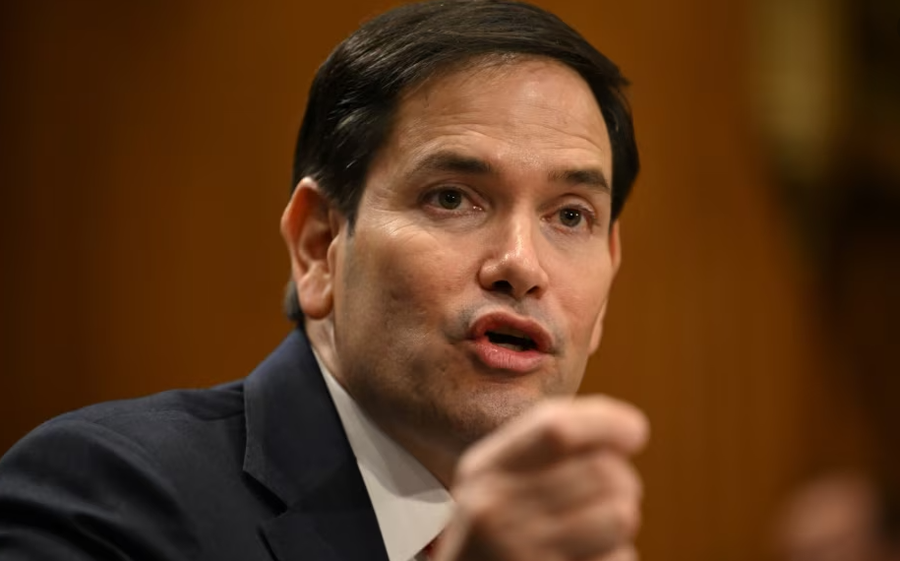
US Secretary of State Marco Rubio will embark on his first official trip as top diplomat, with visits planned to Panama, El Salvador, Costa Rica, Guatemala and the Dominican Republic from Saturday to Thursday.
Secretary Rubio is expected to meet with Panamanian President Jose Raul Mulino, El Salvadoran President Nayib Bukele, Costa Rican President Rodrigo Chavez, Guatemalan President Bernardo Arévalo, and Dominican Republic President Luis Abinader.
This marks the first time in more than 100 years that a secretary of state's first official visit abroad has been to Latin America, according to the US special envoy for Latin America, Mauricio Claver-Carone.
Officials and experts say the meetings are partly aimed at countering China's growing influence in the region.
The trip comes as President Donald Trump has said he wants the US to regain control of the Panama Canal and as Washington is intensifying efforts to curb illegal immigration.
"Secretary Rubio's meetings with senior officials and business leaders will foster regional cooperation in serving our core and shared interests: stopping large-scale illegal immigration, combating the scourge of transnational criminal organizations and drug traffickers, responding to the challenges posed by China, and deepening economic partnerships to increase prosperity in our hemisphere," State Department spokeswoman Tammy Bruce said in a statement Friday.
President Trump says China controls the Panama Canal, a vital trade corridor connecting the Atlantic and Pacific oceans. But Panama has denied this, insisting it impartially manages all maritime traffic passing through the canal.
On Thursday, Secretary Rubio said that China could potentially block access to the canal in the event of a conflict.
"If the government in China, in the event of a conflict, tells them to close the Panama Canal, they will do that. And in fact, I have no doubt that they have a contingency plan to do that. That is a direct threat," Secretary Rubio said during an interview with 'SiriusXM Radio'.
Panamanian President Jose Raul Mulino ruled out the possibility of discussing control of the canal with the US secretary of state.
"I cannot negotiate, much less open a negotiation process for the canal," he told reporters on Thursday. "This (discussion) is closed. The canal belongs to Panama," he added.
Some analysts say China has used economic and non-economic tactics throughout the Western Hemisphere to expand its influence, raising national security concerns.
"They may think that what they are getting is more Chinese investment in the country, but very soon they will be forced or encouraged to sign up to Beijing's 'One Belt, One Road' initiative, or to sign another agreement that makes concessions to Beijing in the field of telecommunications," said Ryan Berg, director of the Americans Program at the Center for Strategic and International Studies, during a Thursday online roundtable.
The 'One Belt, One Road' initiative is a massive infrastructure project launched by China in 2013, under President Xi Jinping, that aims to connect multiple continents through land and sea corridors.
The United States has warned about the danger posed by the project, which Washington says "is fueled by China's mission to manipulate and undermine the rules-based global trading system for profit."
China's direct investment in Latin America and the Caribbean has increased significantly, says Mr. Berg, citing about $160 billion over the past 15 years.
"From a national security perspective, many of China's economic projects are essentially military ambitions that they are offering in Latin America," said Joseph Humire, executive director of the Center for a Secure and Free Society, a national security think tank.
“China has been in Panama for more than 20 years, but China really became politically active in Panama after 2017,” when Panama signed up to the Belt and Road Initiative and shifted its diplomatic recognition from Taiwan to the People’s Republic of China, Humire said. He added that Panama’s economy has been in decline in recent years.
All of the countries Secretary of State Rubio will visit maintain diplomatic ties with Cuba and Venezuela.
Given the United States' strained relations with these two countries that do not accept deported immigrants, Secretary Rubio could use his trip to support agreements with "third countries" that accept immigrants deported by Washington.
Furthermore, he could negotiate for a greater number of flights with repatriated immigrants./ VOA (A2 Televizion)











